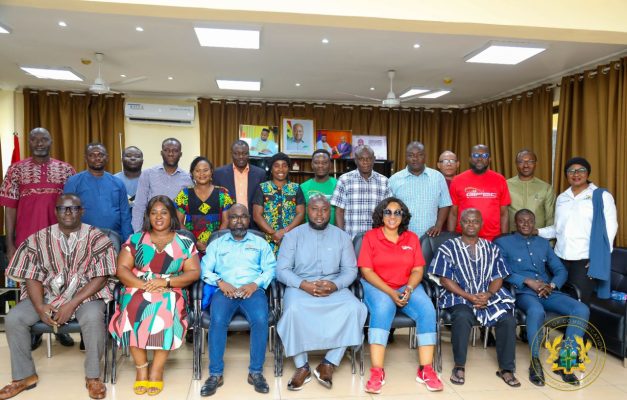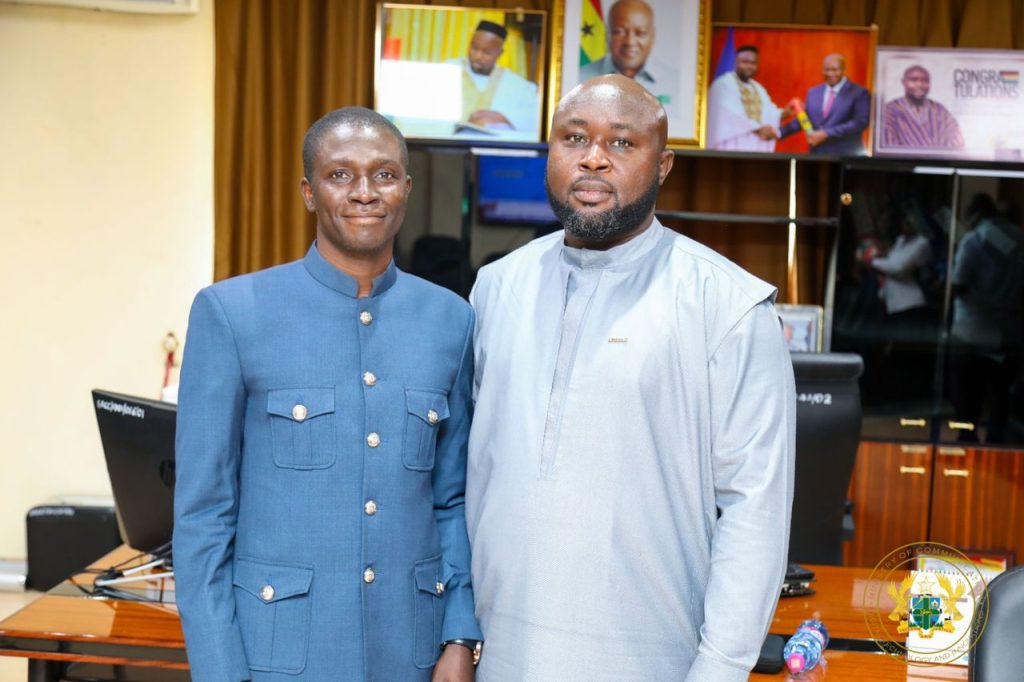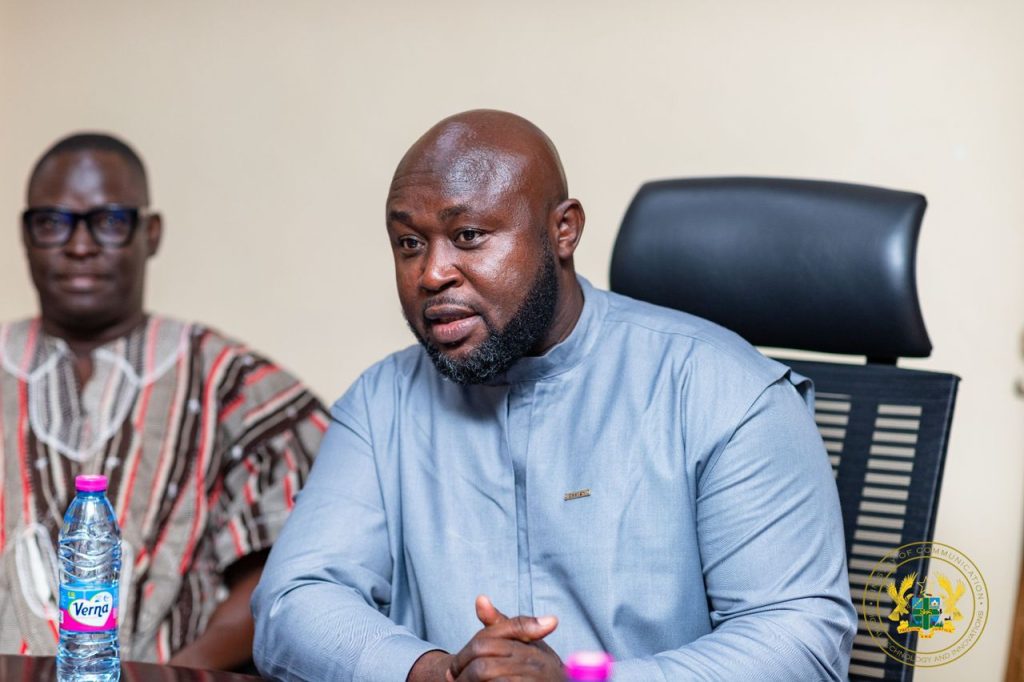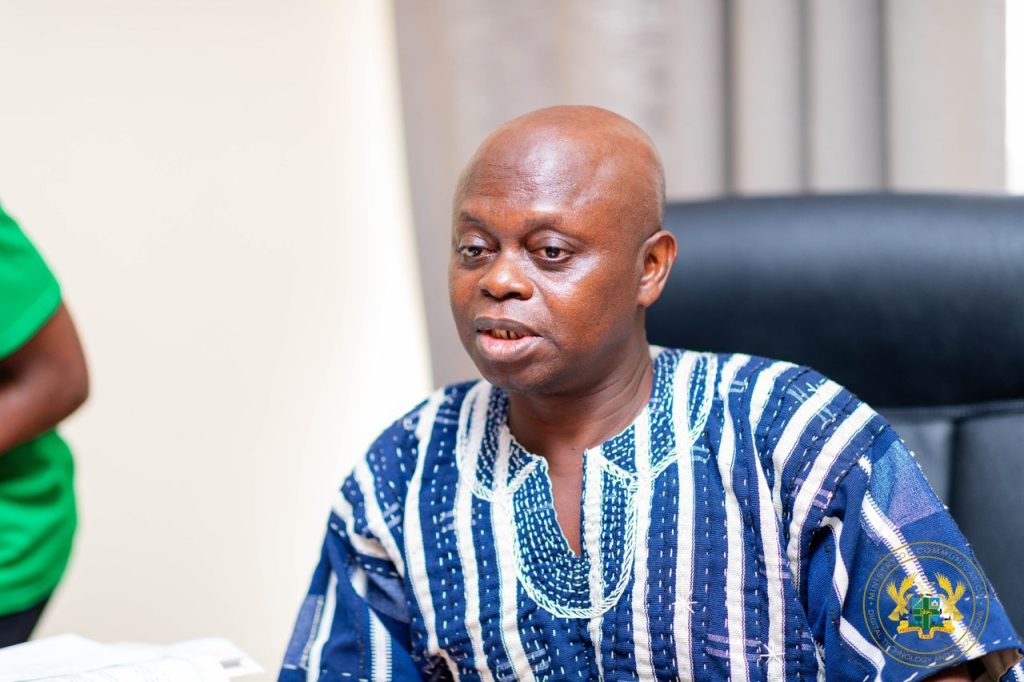
The Ministry of Communication, Digital Technology and Innovations, in collaboration with the Ghana Investment Fund for Electronic Communications (GIFEC) and the Ghana-India Kofi Annan Centre of Excellence in ICT (GI-KACE), has officially launched preparations for the 2025 edition of the National Girls-In-ICT Programme in the Savannah Region.
At an inception meeting held on Monday with the Savannah Regional Minister, stakeholders outlined plans for this year’s activities while reaffirming government’s commitment to bridging the gender digital divide and equipping young girls with ICT skills.
Delivering the opening remarks on behalf of the Sector Minister, the Chief Director, Mr. Alexander Yaw Arphul, underscored the importance of the Girls-in-ICT Programme as a flagship initiative designed to empower girls with digital literacy and inspire careers in science, technology, engineering and mathematics (STEM).
Mr. Austin Hesse, Director of Policy, Planning, Budgeting, Monitoring and Evaluation (PPBME) at the Ministry, who also double as the project coordinator for Girls-In-ICT initiative, highlighted the crucial role of stakeholders including regional authorities, queen mothers, education officials, and community leaders in ensuring the success of the programme.
He stressed that collaboration and ownership at the local level would be key to sustaining the impact of the training.
”The Girls-in-ICT Programme, introduced in 2012 in line with the International Telecommunication Union (ITU) initiative, has since trained over 15,000 girls nationwide in basic coding, digital literacy, and problem-solving skills. It also includes mentorship sessions, visits to technology institutions, and capacity-building workshops for ICT teachers”, he explained.
The Savannah Regional Minister, Hon. Salisu Bi-Awuribi Esq., in his remarks, described the Girls-In-ICT initiative as a transformative programme that gives young girls the skills needed to thrive in the digital era and emphasised, that the world is rapidly advancing into artificial intelligence, machine learning, as well as other emerging technologies, making ICT literacy not just an advantage but a necessity for the future workforce.
“The reality is that tomorrow’s illiteracy will not be about reading and writing but about lacking ICT knowledge. Introducing our children, especially the girl child, to technology at an early stage is the best investment we can make,” he stated.
The Director of Operations at GIFEC, Mr. Yahaya Zakaria Osman, also gave brief remarks, outlining GIFEC’s central role in the initiative. He explained that GIFEC provides ICT infrastructure, digital training support, and community-based interventions to ensure access for underserved areas.
He outlined ongoing activities by GIFEC, including the expansion of rural telephony projects, the establishment of Community ICT Centres, and the roll-out of capacity-building initiatives aimed at promoting inclusive digital participation.
The Regional Minister further observed that cultural and structural barriers often place the female child at a disadvantage in education and professional advancement. He therefore commended the Ministry, GIFEC, and their partners for returning to the Savannah Region for the second time with the programme, describing it as a potential game-changer for poverty alleviation and social development.
He called on teachers and parents to take the programme seriously, as ICT skills could open global opportunities for girls, including remote employment, research, innovation, and even income generation while still in school.


